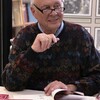As a teen, Phil Donahue dreamed of being a famous TV personality. By the age of 27, he was well on his way to “success.” He worked as a reporter for the national network CBS. It was only radio, but it was CBS just the same.
Donahue’s big break came when he was in Holden, West Virginia, covering the story of a mine collapse that had trapped 38 men underground. Each night he called in a report to CBS Radio.
Then one evening, events unfolded such that Donahue was certain the story would make it on CBS’s television news schedule. It was a riveting snapshot of the faith of mountain folk—surely an irresistible broadcast to the big boys back in New York.
During a break from the rescue attempts, the people of the Appalachian village gathered around a barrel filled with burning wood. The flames danced against the dropping snowflakes. A middle-aged preacher led an impromptu prayer meeting.
“Dear God, we ask your blessing at this troubled time ....”
The preacher blended in with the sooty faces of the miners decked out in lamp-caps. What followed was a heart-wrenching drama that was sure to seize the hearts of viewers around the world.
“In your name and for your sake we offer this prayer.” As he prayed, the miners began to sing:
“What a friend we have in Jesus,
All our sins and grief to bear,
What a privilege to carry
Every thing to God in prayer.”
“Bless us, Lord, hold us in your arms,” the preacher continued.
Donahue reckons it was the most inspiring and captivating reality TV ever captured—that is, ever attempted to be captured. With the temperatures so frigid, the camera made a grinding sound—the scene had not been recorded after all.
“...In your name and for your glory, amen.”
No film, no fame, no success story. Donahue quickly reacted, cornering the preacher.
“Reverend,” he said, “I’m Phil Donahue for CBS News. We had some camera problems and were not able to record your wonderful prayer. Our equipment is ready now. May I ask you to repeat that prayer, and I will ask the miners to sing again.”
The preacher looked troubled. “But I have already prayed, son.”
“Reverend, I am from CEE BEE ESS NEWS.” At least Donahue was impressed with his own credentials.
“I have already prayed,” the preacher said firmly. “It wouldn’t be right to pray again. Wouldn’t be honest.”
No amount of begging, pleading or bribing could change the preacher’s mind. Listen to how Donahue would later reflect about that experience:
I had finally come to grips with my own reality: Phil Donahue was not going to appear on his parents’ TV, nor in any taverns, nor be seen by millions of viewers throughout the free world.
Why the dawn came slowly to me, I cannot explain. It was months before it hit me: That preacher demonstrated more moral courage than I had ever seen in my lifetime. In a world of posturing and religious pomp, here was a man of God who refused to perform for television. His prayer had already been offered, and repeating it would have been phony. “It wouldn’t be right,” he said resolutely.
I have thought about that preacher many times since....No matter my pleadings, he would not do “take two” for Jesus. Not for me, not for all those taverns, not for “millions of people through the free world.”
Not even, praise the Lord, for CEE BEE SSS NEWS.
In the end, Donahue discovered that true success isn’t defined in terms of fame. Rather, it’s all about character.
Adapted from: Marlo Thomas and Friends, The Right Words at the Right Time, New York: Atria Books, 2002, pp. 91-95.





